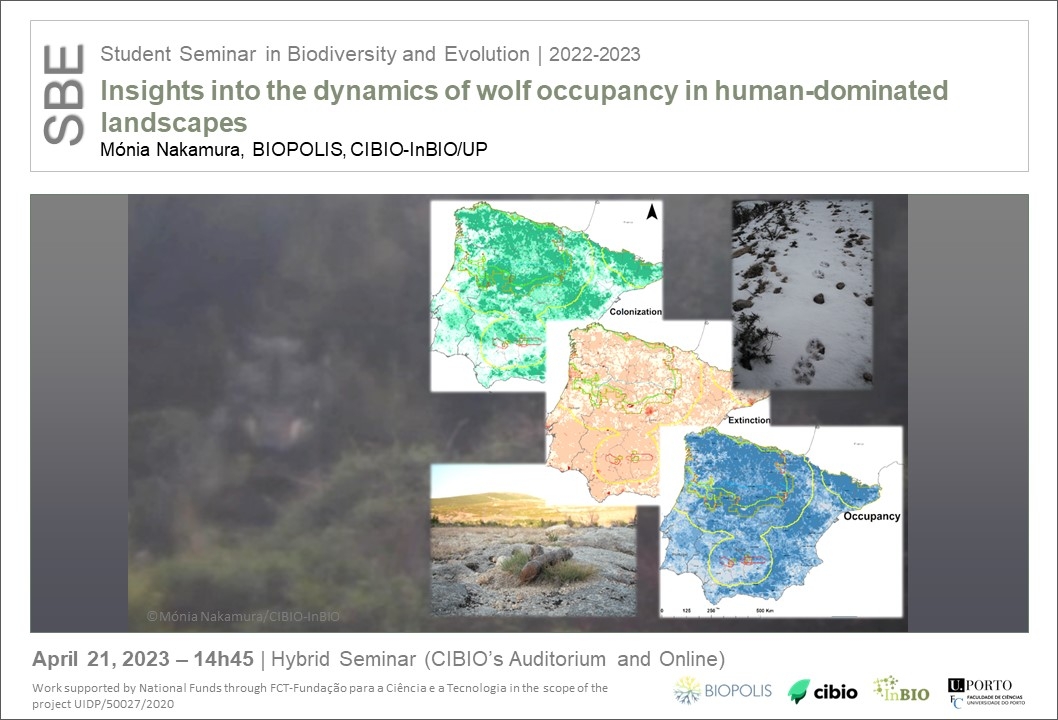Insights into the dynamics of wolf occupancy in human-dominated landscapes
Event
STUDENT SEMINAR IN BIODIVERSITY AND EVOLUTION
April 21st, 2023
Mónia Nakamura, BIOPOLIS, CIBIO-InBIO/UP | 14h45 | CIBIO’s Auditorium and Online

STUDENT SEMINAR IN BIODIVERSITY AND EVOLUTION
Among large carnivores, wolves show a remarkable capability to persist in human-dominated landscapes. However, the temporal dynamics of variation in spatial use of these landscapes remains poorly understood. Considering the relevance of spatio-temporal variations of territorial marking on wolf behaviour, either to defend territory boundaries and core areas or to expand into new areas, the location of wolf signs should reflect the dynamics of spatial use. Taking advantage of a long-term non-invasive wolf monitoring dataset spanning from 2005 to 2022 we fit a dynamic occupancy model to investigate the effects of environmental and anthropogenic factors on the dynamics of wolf spatial use in human-dominated landscapes. We focused on two dynamic parameters of spatial use – colonization and extinction – and developed a wolf habitat suitability map for Iberia. Colonization probability increased with the increase of altitude, livestock density, and unpaved roads density, and with the decrease of burned areas, national-regional, and local road densities. Extinction probability increased with higher unpaved road densities.
In addition, we evaluated the wolf range dynamics in Iberia to understand if the ecological traits explained the expansion, stagnation or extinction sites observed since the beginning of the 2000s. Our results contribute to a sound understanding of wolf spatial use in human-dominated landscapes, and their ability to adapt to these dynamic environments. The strong influence of livestock on the dynamics of wolf occupancy highlights the need to assess social factors, human dimensions, and direct wolf mortality causes for conflict management associated with livestock depredation.
Mónia Nakamura is a PhD candidate in BIODIV and in cotutelle with the University of Montpellier, with a thesis entitled "Wolf demography in human-dominated landscapes: Insights for wolf conservation in the Anthropocene”. Her work is supervised by Dr. José Vicente López-Bao (Biodiversity Research Institute, University of Oviedo – CSIC – Principado de Asturias), Dr. Pedro Monterroso (CIBIO-InBIO), and Dr. Olivier Gimenez (Centre d’Ecologie Fonctionnelle et Evolutive). Mónia’s PhD research focuses on assessing the impacts of anthropogenic factors on large carnivore persistence in human-dominated landscapes. Mónia uses the wolf as a model species to address how different humanization levels can influence habitat selection and land use and ultimately affect wolf demography, status, and viability.
[Host: Pedro Monterroso, Wildlife Conservation Ecology - WILDEcol]
